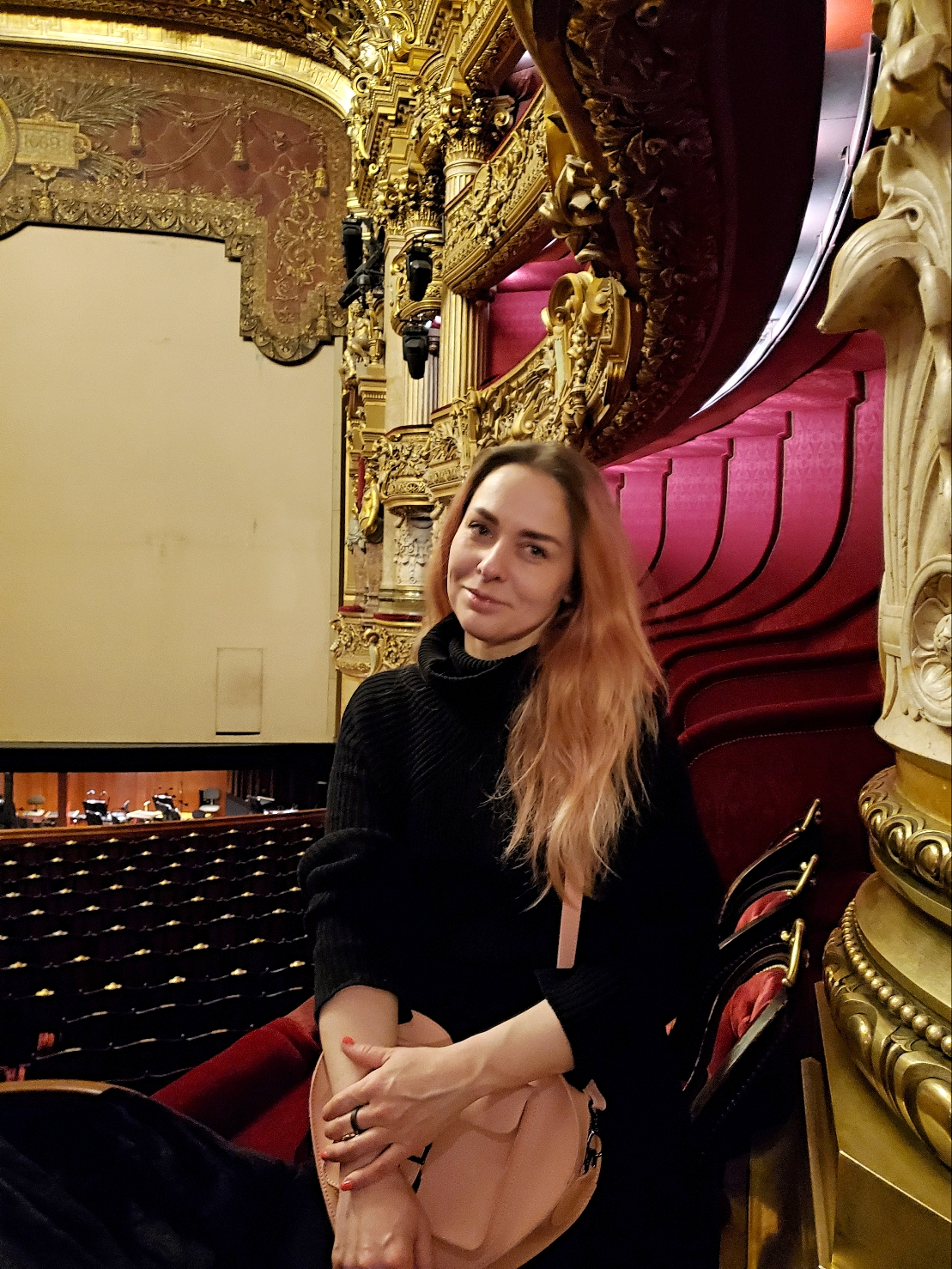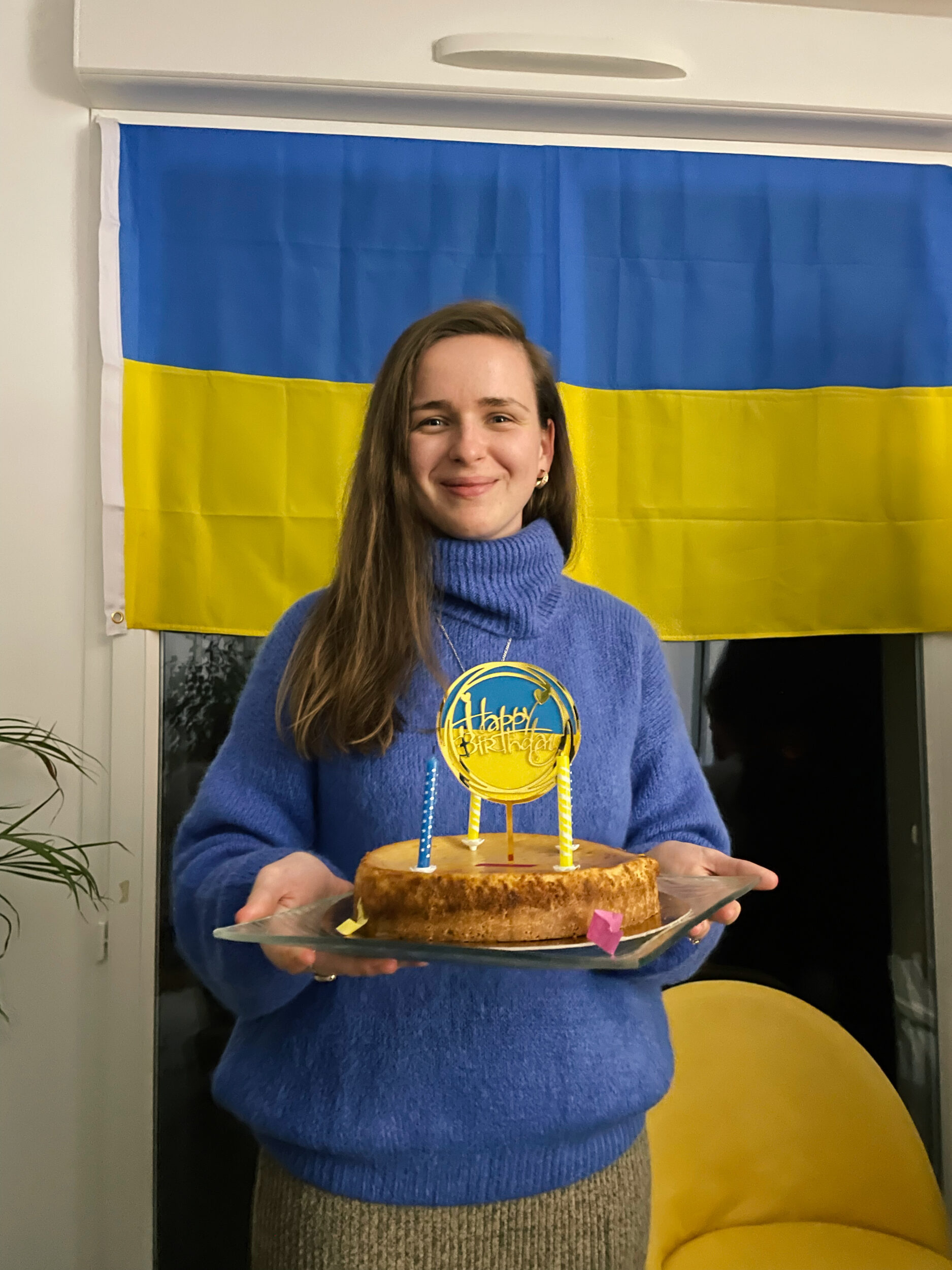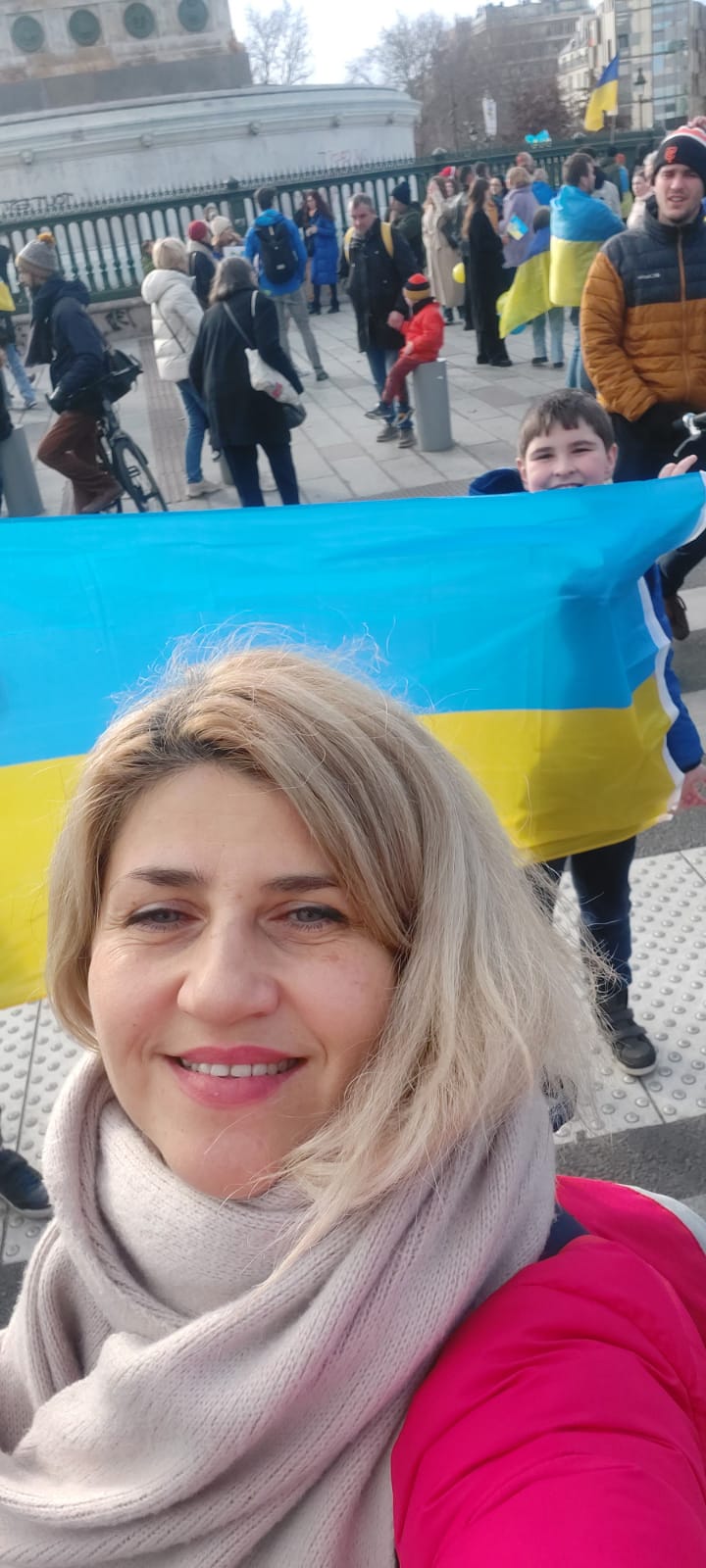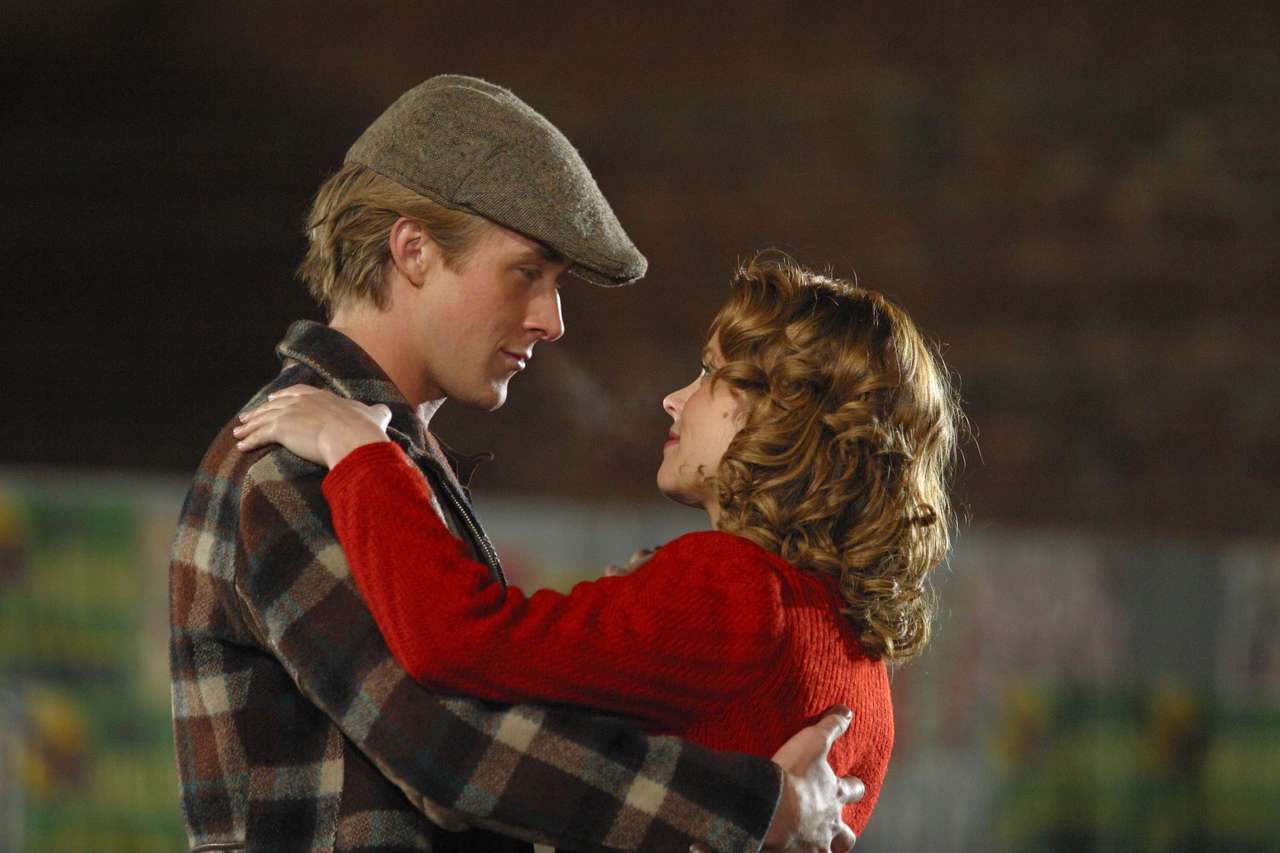On February 24, 2022, Russian troops invaded Ukraine and marked the beginning of a violent war that has driven thousands of citizens into exile. A year later, nearly 110,000 Ukrainians have taken refuge in France, nearly 80 per cent of them women, according to the latest Interior Ministry figures released on February 23, 2023.
Madmoizelle went to meet three of them. Despite vastly different life paths, they all escaped the Russian bombs, leaving their former lives overnight. Some brought their children (without their husbands, because men aged between 18 and 60 were mobilized), others came alone or with elderly parents. Everyone talks about this feeling of instability, this painful uncertainty, this lack of others, this sudden adaptability, this strong resistance and their hope that better days will soon return.
“Today my daily life is organized around work, learning French and resting. »
My name is Victoria, I’m 41 and I arrived in France in March 2022. I’m originally a stylist, but I’ve been working for two months in a restaurant. At the same time, I continue to develop my clothing brand in Ukraine and look after my team who still live there.
I left Ukraine when it became too dangerous for me and my son to stay there. Thanks to a mutual friend, we got in touch with Frédéric, a French volunteer, who allowed us to find a French family to host us in Paris.
There were no planes flying from Ukraine at the start of the war. We took the train to western Ukraine, then through Romania, Austria, Germany and finally France. In Paris, Frédéric picked us up at the station and took us directly to Chantal and Jean-Jacques, who welcomed us into their home with their children. This is where we still live today.
My father still lives in Ukraine. I offered to come with us, but he preferred to stay. I worry a lot about him. Every day I learn about the situation there, through the app Telegram (platform half messaging and half information, ed.), but also by watching videos Youtubecalling my family… I try to filter the information I receive, to clearly distinguish the true from the false and keep a realistic view of what is happening in Ukraine.
I don’t know yet if I’ll go back to live there, I’m waiting to see how the situation develops. My daily life has nothing to do with it: I remember just a year ago, on February 24, 2022, when the war broke out. We took our cats and took refuge in the countryside. We wanted to take the time to digest what had just happened and think about our course of action. A year later, here I am in a new country, with another culture and another mentality: for example, in France there is a lot of paperwork, if only to open a bank account. In Ukraine, everything is digitized. And I also see differences in the way of thinking: there is another relationship with money, with relationships between men and women… I changed my habits: today my daily life is organized around work, learning the French and at rest.

Victoria, 41, stylist
“Experience has shown me that adaptability is one of the most important qualities in this unstable world. »
My name is Bohdana, I am 27 years old and I live in Avallon, Burgundy. I arrived in France on March 13, when Russia had already invaded Ukraine for three weeks.
I’m learning French and volunteering for an association, Angelic Choir Refugee Charity Inc, which supports refugee children with mental health issues through pet therapy. We want to open centers in Canada and Europe for refugee children of all nationalities. The idea would be that they would come to find psychological help to be better prepared and more easily adapt to life in a new country where they would be granted asylum, despite the traumas of the past.
A year earlier I was working as a project manager for several Ukrainian clients on topics of online training, web design and marketing. On February 21, 2022, I left Lviv to move back to my hometown of Tulcyn, where I grew up. Three days later war broke out.
On February 24, Tulcyn was hit by a Russian bomb. At first it was impossible for us to guess what turn events would take. Work suddenly stopped and we didn’t know what our future would look like. We have not been able to project ourselves into the future. At home we didn’t even have a basement to protect us in case of aerial bombing. We also couldn’t hear the sirens blaring in town and our only way to get information was through the mobile app. Alarm. We started wondering what we would do if the worst happened. Without gas, without water, without electricity, without access to health care, without food in our shops, with ruined cities all around us, as happened in Mariupol… how would we survive?
We knew there were some wells where we could get water, but would there be a queue to get there? A can of gas would last us six months, and then what? We have a garden, we can plant some vegetables to eat. Maybe my father should load his gun in case looters or Russians come and steal our food? But a shotgun wouldn’t get us very far… At that time, we couldn’t even imagine the atrocities committed by Russian soldiers in certain cities, such as Bucha.
My foreign relatives and friends advised me to flee to the European Union. And if I was ready to leave at any moment, it wasn’t that easy for my parents. It was very difficult to get my mother to leave Tulcyn. We had to convince her with a lot of ultimatums and blackmail. One day we put everything in the car and finally we left. The trip took 5 days, my father covered 2500 kilometers and I took care of the GPS. We also got two cats, rescued from Kharkiv the day before. Along the way, we have been graciously hosted in Moldova, Romania, Hungary and Germany.
We chose France because my cousin lived there for a long time. The town hall of Avallon had communicated to the Ukrainians present on the spot that it would provide social housing for their relatives fleeing the war. My cousin Maria welcomed us into her home and she took care of us. She helped us with administrative paperwork and with our daily needs. We were also helped by volunteers from the Kiev-Avallon association, Restos du Coeur, Secours Populaire, the Red Cross, Coallia, but also by generous citizens.
If my mother, father (who is over 60 and therefore entitled to leave the country) and my two aunts are with me in France, the rest of my family stayed there. My cousin missed his alarm clock one morning in July and it saved his life because his bus stop was flattened by a Russian missile.
Some people think there is no war in central and western Ukraine. If there really is no front line, there are rocket attacks every week, even in Lviv. The inhabitants are also deprived of water, heating and electricity for several hours a day because their infrastructure has been damaged by bombs.
For the first 8 months I watched the news every day and then realized the effect it was having on my mental health. It made me want to cry, I lost all motivation. Today I focus on my volunteer work. For example, I organized horse riding for refugee children, it brought them some joy. I also held a booth in Avallon to raise funds and support Ukraine through Kyiv-Avallon association.
I don’t know if I will go back to Ukraine. If Russia manages to occupy the region where my parents’ house is located, then I will stay in France, continue to learn French and pay taxes here. And if my temporary protection status expires, I will take the necessary steps to be able to stay legally, here or in another democratic country.
But I believe in the victory of Ukraine. I don’t know what the future holds for me, but I’m young and my life is ahead of me. The war will probably last for a while and I don’t want to put my life on pause.
The longer the war lasts, the more we build a life abroad. We find work, friends, love, even sometimes. And for some, returning to Ukraine would mean starting all over again. I don’t have a job, a house or a husband in Ukraine, so I build my life where I am. Experience has shown me that adaptability is one of the most important qualities in this unstable world.

Bohdana, 27, is looking for work
“A year earlier I was dancing and playing the piano. I went to the cinema, to the theatre… It was simple and beautiful”
My name is Nina, I’m 44 years old and I arrived in France with my twins, Grigoriy and Oleksii. First we were hosted by a family who lived in Saint Cloud, then we moved to Garches with other hosts. Since our arrival, my children have changed schools three times.
I am an economist. Before the war, I worked for a pipe company that specialized in water supply. But my level of French was not sufficient to be able to get an equivalent position here. Then, I take courses taught by the French Campus to improve my fluency in the language. If I have the opportunity, I would also like to continue my studies using my current diploma in order to be able to pursue a master’s degree in economics.
I follow Ukrainian news around the clock, including through the application Telegram. My parents, brothers and sisters, as well as their families, still live in the suburbs of Kiev. Sometimes they are targeted by bombs and drones. I worry a lot about them. I miss them, I want to see them and I hope to visit them very soon.
But I don’t know if we will go back to Ukraine, especially if I find work in France. It would be difficult for my children to move again. Every day I try to reassure them, I promise them a better life, so it will be easier for them to focus on their studies. On Saturdays I take them to the Ukrainian school so they can speak Ukrainian with other children. We regularly go to places where Ukrainian refugees congregate, such as the church or the Ukrainian cultural center. It keeps us connected to our roots.
A year ago, we had a very normal life. My children went to school, sometimes they took lessons online… We had many hobbies: I danced, I played the piano, my boys played football, we went to the cinema, the museum, the theatre, the circus… It was simple it’s nice. I have also been to Paris and France several times. I had already started learning French before the war because I liked the French culture and way of life. When I had to leave, it therefore seemed easier for me to settle in a country that was somewhat familiar to me. I had friends there; they helped me not feel too alone.

Nina, 44, economist
To testify about Madmoizelle, write to us at:
[email protected]
We can’t wait to read from you!
Source: Madmoizelle
Mary Crossley is an author at “The Fashion Vibes”. She is a seasoned journalist who is dedicated to delivering the latest news to her readers. With a keen sense of what’s important, Mary covers a wide range of topics, from politics to lifestyle and everything in between.




